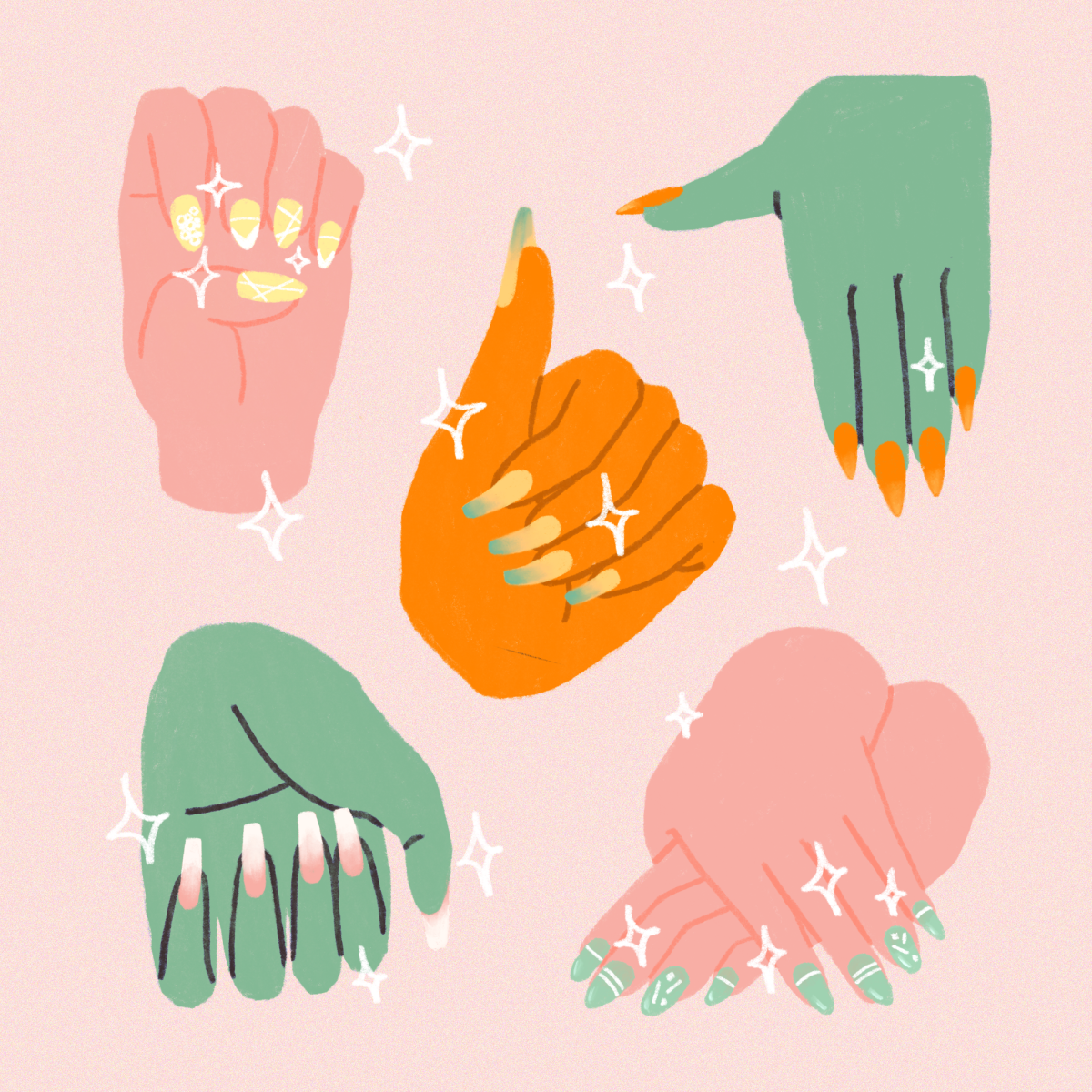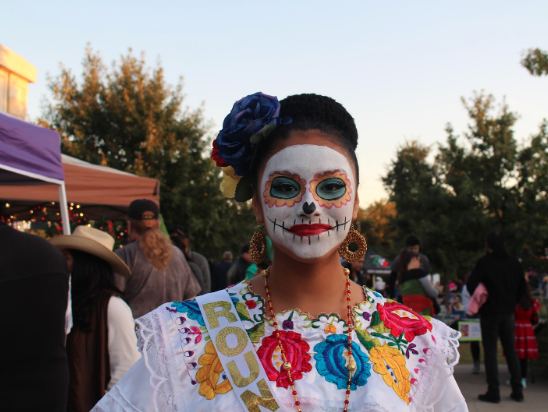For nine years, the nonprofit organization Dress for Success Austin has provided interview and employment clothes, as well has career preparation programs, for economically disadvantaged women.
The organization was founded by Nancy Lublin, a resident of Manhattan, who was willed $5,000 by her grandfather and wanted to invest it in a worthwhile cause. She realized that all over New York city women wanted to work but could not afford the proper clothes required for the workforce. To address this issue, she began providing these clothes, working with nuns in the basement of a church in Harlem. From that point, Dress for Success was born. It has since grown and evolved, becoming a global organization with 124 affiliates in 13 countries – Poland, the Netherlands, England, Ireland and some South African countries – in just 15 years.
The Austin affiliate branch of Dress for Success is situated in the heart of East Austin’s nonprofit community and housed in a modest building that used to be a Mrs. Baird’s Bakery. The organization serves Travis County and five other surrounding counties, providing services to over 6,000 women since its initial launch in 2002, began by four women from different professional backgrounds in the Austin community. In 2003 Judy Chambers stepped in as the new executive director and helped the organization officially open its doors. “My daughter, one of the founding board members, said, ‘Would you consider coming on as executive director?’… “Here I am almost seven years later. It’s the kind of organization that becomes part of you, your heart and your soul, and I think some of that is because we make a difference in women’s lives,” Chambers says.
But not just any woman can use the Dress for Success services. The organization works in partnership with more than 80 other nonprofit and government agencies in Central Texas including the Salvation Army, Goodwill, Hope Alliance, The Austin Shelter for Women and Children and some Veteran groups as well as several Austin churches that send women by a referral process only. The clientele in Austin is just as diverse as the organization is global, serving locals as well as immigrants and refugees. About two-thirds of the clientele are Latino or African American, with the remainder being Caucasian, Asian and Indian. This demographic is made up of women of all ages, as well as some transgender clients. And while culturally they are diverse, the backgrounds from which these women come are just as unique. “We’re all about empowerment,” Chambers says. “These gals have such challenges when they come to us for help.” Homelessness, incarceration, foster care, substance abuse and generational poverty, to name a few.
The “suiting” process begins with one of the partnered agencies contacting the affiliate about a client who is going to have a job interview. The client is scheduled for a suiting appointment at the affiliate, where she will be paired with one of the many volunteers who helps pick out interview attire. Lindsey Schell, a Saturday volunteer of three years, says a suiting can often be challenging for clients, most of whom never really had properly fitting clothes. “A lot of our clients don’t know their sizes because they haven’t been shopping because they can’t afford to,” Schell says. “We pick a starting guess. I always try to reassure them that we have enough stuff here that we will find the right fit. Even if you have to try on 10 suits, we will get the one that looks great on you.”
A suiting can take around an hour to an hour and a half, and by the end the woman has been provided with a professional suit or separates, a couple blouses, shoes, handbag, jewelry, cosmetics and a new bra – a simple luxury that most of the clients cannot afford. Austin is one of the few affiliates that provide undergarments. Once a woman obtains a job, she can contact the affiliate again and receive additional employment clothes. “By the time they walk out of here, they look like a million bucks,” Schell says. “They’ve got a huge smile on their face and they’re totally pepped to go to their interview. I just think it’s such an amazing transformation in such a short amount of time.”
Though dress encompasses a huge part of the organization’s mission, it’s not just about the suit. “That’s the foundation and will always be the foundation, but that’s not enough,” Chambers says. “It didn’t take long for Dress for Success affiliates everywhere to realize that you can’t just put a beautiful suit on a woman, walk her to the door, and say good luck.” Beginning in 2008, the Austin branch initiated pre-employment and post-employment programs:
- The Going Places Network by Wal-Mart is a 14-lesson program that helps clients develop a personal brand, network and pursue their professional goals.
- The Professional Women’s Group helps with job retention and provides training opportunities to employed women through networking with Austin professionals. It meets once a month and often features guest speakers.
- Women 2 Women provides PWG members mentor/mentee opportunities with professional women in the Austin community. It is set up in three month blocks, but may be extended.
- Financial Literacy helps PWG members learn the skills necessary to manage personal finances. Members of this group must be employed full-time, part-time or in a temporary position.
Women who are Dress for Success members – and once they are, it’s for life – have the opportunity to participate in these programs. Another program, the Career Center, pairs a client with a volunteer who helps conduct mock interviews, work on resumes and cover letters at the affiliate’s computer kiosk area. The Austin branch is also one of 10 affiliates chosen to begin the Skills to Success program, which helps women obtain the skills to start their own business through a series of workshops. It is scheduled to launch in January.
Like most nonprofit organizations, the backbone of Dress for Success is its large body of volunteers. Currently, over 100 volunteers staff the Austin affiliate and a waitlist of even more would like to help. Only three members – Chambers, along two others – are employed full-time, part-time or contracted with the organization. “It’s true of all the affiliates,” Chambers says. “Unless they’re a large affiliate, then they may have a staff. But most of us are just one, two and three people, and lots of volunteers.”
Echoing the organization’s early foundation, most volunteers attribute their dedication to a personal commitment to help their community. Others join with the hopes of meeting friends or want to set an example for their children. All come from as diverse of backgrounds as the clients they help, ranging from multi-language speaking professors, older women, persons of Ecuadorian and Colombian roots and students fresh out of college and new to Austin.
Since Dress for Success Worldwide only provides the brand, guidelines, policies and oversight, all funding for the individual affiliates comes from their local communities. In Austin, all of the professional attire is either donated directly to the affiliate, or at a drop off box located at Westbank Dry Cleaners. Owners William and Angie Charnes also donated and installed an overhead clothes conveyor for easy storage and organization. Other donations include an expansive shoe rack installed by The Container Store, money from The Lowe Foundation for general operating expenses, 200 pieces of Lia Sophia jewelry and Bobbi Brown cosmetics – who is an official sponsor of Dress for Success nationally.
With the exception of a few pre and post-employment programs that receive funding from sponsors, most other funding comes from third-party fundraisers as well as grants. And in a city of 3,000 nonprofit organizations, getting a grant or any sort of funding can be tough. “We always laugh when we go to funding fairs and stuff that we lose out to children and puppy dogs,” Chambers says. “And I love children and puppy dogs, but that’s where peoples’ heart is. One of my messages constantly is that if you’re going to help a child that’s living in poverty, then you help the mother get into the workplace and successfully stay there.”
Since its opening, 62.5 percent of women who have gone through the Dress for Success Austin program have become employed. In total, the organization has served about 6,900 women, of which about 82 percent are mothers. That ultimately equates to 6,900 women raising 14,000 children, Chambers says.
One goal Chambers has in mind is to acquire more space for the affiliate, whether it means renting additional suites in their current building or moving to an entirely new location. Their East Austin location is ideal, since a majority of the organization’s clientele lives in the area, but the rent has increased from $1,500 the first month to its current $2,700 a month. The area is also home to several other nonprofit organizations, including Meals on Wheels, Lifeworks and Livestrong. Chambers would also like to house all of the affiliate’s pre and post-employment programs under the same roof, since currently most of them are held at local community colleges, restaurants and churches.
Each year Dress for Success Worldwide pays for one member to attend a 3-day global networking conference, after which she must lead her local PWG members in a Community Action Project. “CAP is based on the premise that Austin helped you get back on your feet, now you’re working, it’s time for you to give back to Austin,” Chambers says. Betty Staehr’s project was to raise awareness about the 400 homeless, single women living in Austin, for whom there are only 50 beds designated. She held a shoe drive with the goal of raising 400 pairs of shoes to symbolize the number of homeless women. The project caught the attention of doctors, counsel women and even the mayor who wanted to help by having shoe bins in their offices. In the end, more than 700 shoes were collected.










































